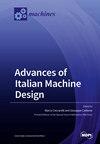A Deep-Learning-Based Approach for Aircraft Engine Defect Detection
IF 2.1
3区 工程技术
Q3 ENGINEERING, ELECTRICAL & ELECTRONIC
引用次数: 3
Abstract
Borescope inspection is a labour-intensive process used to find defects in aircraft engines that contain areas not visible during a general visual inspection. The outcome of the process largely depends on the judgment of the maintenance professionals who perform it. This research develops a novel deep learning framework for automated borescope inspection. In the framework, a customised U-Net architecture is developed to detect the defects on high-pressure compressor blades. Since motion blur is introduced in some images while the blades are rotated during the inspection, a hybrid motion deblurring method for image sharpening and denoising is applied to remove the effect based on classic computer vision techniques in combination with a customised GAN model. The framework also addresses the data imbalance, small size of the defects and data availability issues in part by testing different loss functions and generating synthetic images using a customised generative adversarial net (GAN) model, respectively. The results obtained from the implementation of the deep learning framework achieve precisions and recalls of over 90%. The hybrid model for motion deblurring results in a 10× improvement in image quality. However, the framework only achieves modest success with particular loss functions for very small sizes of defects. The future study will focus on very small defects detection and extend the deep learning framework to general borescope inspection.一种基于深度学习的航空发动机缺陷检测方法
内视镜检查是一种劳动密集型过程,用于发现飞机发动机中的缺陷,这些缺陷包含在一般目视检查中看不见的区域。该过程的结果在很大程度上取决于执行该过程的维护专业人员的判断。本研究开发了一种用于自动管道镜检查的新型深度学习框架。在该框架中,开发了一种定制的U-Net架构,用于检测高压压缩机叶片上的缺陷。由于在检查过程中叶片旋转时会在一些图像中引入运动模糊,因此基于经典的计算机视觉技术,结合定制的GAN模型,应用了一种用于图像锐化和去噪的混合运动去模糊方法来去除效果。该框架还通过测试不同的损失函数和分别使用定制的生成对抗性网络(GAN)模型生成合成图像,部分解决了数据不平衡、缺陷小和数据可用性问题。深度学习框架的实施结果达到了90%以上的准确率和召回率。运动去模糊的混合模型使图像质量提高了10倍。然而,该框架仅取得了适度的成功,对于非常小尺寸的缺陷具有特定的损失函数。未来的研究将集中在非常小的缺陷检测上,并将深度学习框架扩展到通用管道镜检查。
本文章由计算机程序翻译,如有差异,请以英文原文为准。
求助全文
约1分钟内获得全文
求助全文
来源期刊

Machines
Multiple-
CiteScore
3.00
自引率
26.90%
发文量
1012
审稿时长
11 weeks
期刊介绍:
Machines (ISSN 2075-1702) is an international, peer-reviewed journal on machinery and engineering. It publishes research articles, reviews, short communications and letters. Our aim is to encourage scientists to publish their experimental and theoretical results in as much detail as possible. There is no restriction on the length of the papers. Full experimental and/or methodical details must be provided. There are, in addition, unique features of this journal: *manuscripts regarding research proposals and research ideas will be particularly welcomed *electronic files or software regarding the full details of the calculation and experimental procedure - if unable to be published in a normal way - can be deposited as supplementary material Subject Areas: applications of automation, systems and control engineering, electronic engineering, mechanical engineering, computer engineering, mechatronics, robotics, industrial design, human-machine-interfaces, mechanical systems, machines and related components, machine vision, history of technology and industrial revolution, turbo machinery, machine diagnostics and prognostics (condition monitoring), machine design.
 求助内容:
求助内容: 应助结果提醒方式:
应助结果提醒方式:


